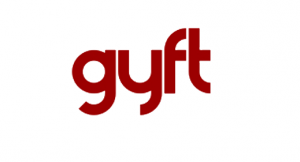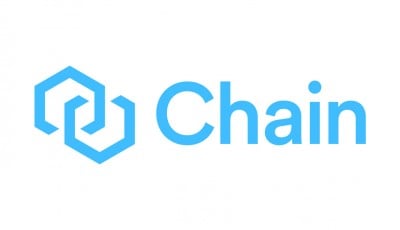Chain, Gyft partner on blockchain-issued gift cards
 Gyft, an online platform for purchasing, sending, and redeeming gift cards, has partnered with blockchain infrastructure provider Chain to administer gift cards for thousands of small businesses on the blockchain through a program called Gyft Block, reported Forbes.
Gyft, an online platform for purchasing, sending, and redeeming gift cards, has partnered with blockchain infrastructure provider Chain to administer gift cards for thousands of small businesses on the blockchain through a program called Gyft Block, reported Forbes.
“Block chain issued digital gift cards will lower costs, reduce fraud, and provide merchants and brands with new marketing opportunities,” said Chain in a company blog post. “These dollar denominated digital gift cards are powered by the Internet and open protocols, and the experience of using one will be familiar to anyone who has paid for something with a smart phone. The fact that bitcoin is being used as the enabling technology under the hood will be invisible to end users.”
Small businesses are less likely than large merchants to offer gift card programs, and the reason for that is the cost, said Gyft CEO Vinny Lingham to Forbes. The company decided the blockchain would allow it to offer small businesses a “very cheap, very secure and very fast” solution.
Chain CEO Adam Ludwin told the magazine that “what’s exciting about this announcement is that it’s really the first real-world blockchain-based product that’s not Bitcoin that people will experience and understand since everyone understands what a gift card is.”
Using the blockchain would signal an improvement in security over the current gift card system, which suffers from a lot of fraud, reported Forbes. A blockchain-powered process generates a new address for every transaction, even if the final destination is the same. A consumer would receive a gift card into their wallet and send that same card back to the merchant’s wallet with another address, preventing a would-be fraudster to obtain the value from the card.
Once a gift card is in a new wallet, the holder of the private key is the only person who can move it out again. If that individual want to move the funds to another wallet, they use their private key to move the money out of her wallet and obtains a public key for the destination.
One significant aspect of Gyft Block will be that the value of the gift card will not be held in Bitcoin, although the transfers will be recorded on the blockchain, said Forbes. This means each gift card transfer will move a fraction of a Bitcoin called a Satoshi (a hundred-millionth of a BTC), on which is coded metadata containing the value of the gift card (for example, $50), the name of the merchant, and other data. But the transaction itself will not move $50 worth of Bitcoin.
The program will allow for consumers to swap blockchain-issued gift cards. For example, if someone receives a Starbucks gift card but is not a big coffee consumer, they could post the card in a marketplace that matches them with someone seeking a Starbucks card who is offering something they want, and then the digital assets could easily be traded digitally.
In the existing gift card system, each retailer has its own proprietary system, but the new system will allow much more flexibility, said Ludwin. “What’s happening is that there’s a shift happening away from rigid printed gift cards to digital cards and finally, really, merchant-issued currencies is where we’re ending up…These currencies can move more seamlessly in social media, video games, in any kind of digital media, can integrate with other applications and apps on your phone more easily, so it’s a much more seamless system.”
Gyft Block will initially work with virtual gift cards, although Gyft is experimenting with blockchain to issue physical cards.











